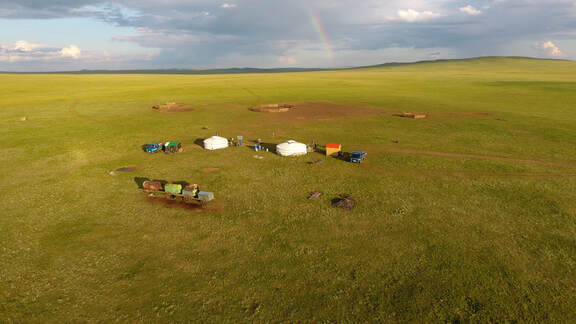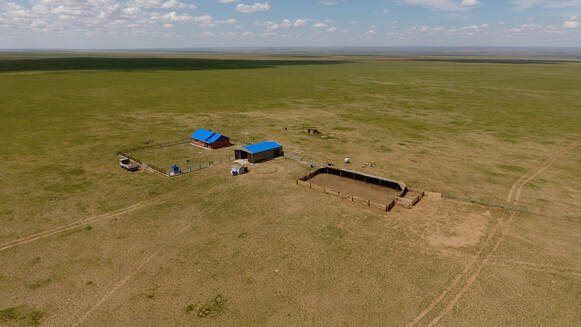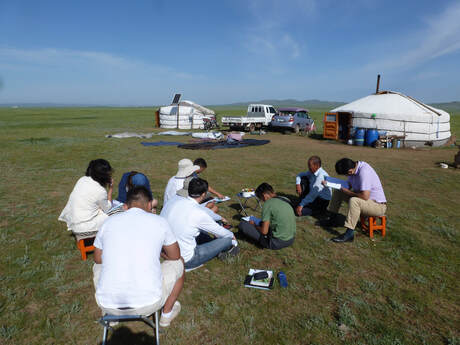Changing nomadic lifestyles
In 2019, social scientists investigating changes in nomadic lifestyles in the MSE conducted qualitative interviews with 70 herder households and 11 key stakeholders. The team focused on understanding major challenges of herding practices, the role of traditional ecological knowledge on nomadic pastoralism and extreme weather events in present day herding practices, and the role of social networks and relationships within herder communities. In addition, the team investigated perceived causes and consequences of environmental changes as well as adaptation measures in response to climate change. Several different methods were used within the qualitative survey, including focus group discussions, qualitative face-to-face interviews, and drawing of family trees.
Regional economics and policy analysis
In order to coordinate socio-economic and policy analysis research within MORE STEP, research teams from work packages 1, 2 and 4 organised a project workshop that took place at the Chair of Ecosystem Services, IHI Zittau-TU Dresden (20-24 May 2019). During August and September of 2019, researchers from work package 2 conducted fieldwork at all core sites, as well as in Ulaanbaatar. Their explorative research focused on collecting quantitative and qualitative data on socio-economic development trends and existing policies on grassland use and biodiversity conservation at different administrative levels within the study region. To get an overview of relevant governance mechanisms and policy options, the researchers identified and collected essential reports and policy documents, conducted 40 expert interviews with local, national and international stakeholders, and co-moderated focus group discussions during the policy session at the stakeholder workshop in Ulaanbaatar (28 August 2019). This work will help us to better understand existing policies on grassland use and biodiversity conservation at different administrative levels within the study region.
Quantitative survey
|
Social ecologists from work packages 4 and 9, with input from the other work packages designed a questionnaire with 81 questions aimed at herder households. 320 households were interviewed in July and August of 2019. The questionnaire focused on various topics including: pastureland use, mobility of herders, migration of family members, livestock production, income, disaster management, livestock losses and attitudes towards wildlife, specifically Mongolian gazelle. Interviews were conducted at all 10 core sites, plus an additional site. The collected data serves as basis for analyzing the effects of socio-economic factors on changing movement patterns of nomadic households.
|


